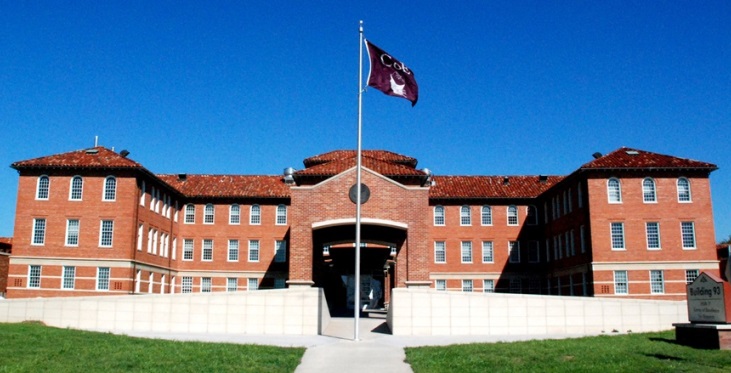VA’s Veterans Integrated Service Network 17, which encompasses 134 counties in Texas, held a ribbon-cutting ceremony April 20 for its Center of Excellence for Research on Returning War Veterans. The new 53,000 square-foot center is a scientific and educational institution designed to conduct state-of-the-art research on mental health problems associated with combat exposure such as post-traumatic stress disorder, traumatic brain injury, substance, suicide and chronic pain.

Dr. Evan Gordon, a cognitive neuroscientist working on MAVEREX, describes a region of the brain and its’ functions during the event.
“I am very excited about the future of this center,” said Director Dr. Michael Russell. “Central Texas has some unique characteristics which will help us become a leading research facility for Veteran mental health. We are located next to the largest Army base in the free world and one of the largest Veteran populations of any health care network in the nation. Put that together with our world class team of researchers, and you have a recipe for success.”
One of the major studies being conducted at the center is Project MAVEREX, which seeks to identify communication deficiencies in injured brains, and whether the inability of the regions to communicate with one another can lead to significantly worse behavioral outcomes for the Veteran.
“We know a great deal about communication in the brains of healthy individuals, but lack insight into how this communication breaks down when the brain is injured,” says Dr. Steven Nelson, director of the Neuroimaging Core.
The flagship study will use data from MRIs to make better-informed treatment decisions for patients.
“With this study, we are using MRI to take a closer look at the brains of TBI patients than ever before,” said Dr. Evan Gordon, a cognitive neuroscientist working on MAVEREX. “By collecting a very large amount of MRI scanning data from each of our participants and employing the most cutting-edge data analysis techniques, we can characterize the effects of TBI on brain structure and function in each person with very high precision.”
The Center is located on the campus of the historic Doris Miller VA Medical Center in in Waco, Texas. The state of the art facility provides space for 75 staff members and faculty, as well 25 trainees, including undergraduates, graduate students, practicum students, interns and postdoctoral fellows. The new facility features multiple examination rooms, observation rooms, electrocardiography, electroencephalography, a three Tesla MRI for brain imaging, a Transcranial Magnetic Stimulation suite, as well as a custom built laboratory wing.

Topics in this story
More Stories
Take the Five Days to be Healthier Together challenge to be stronger and healthier.
This week, VA’s Office of Research and Development (ORD) published three new articles spotlighting research that advances care for Veterans in heart health, mental health and health-system navigation.
VA is putting Veterans in the driver's seat for making medical appointments.






Notice how there were no responses from anyone at the VA to any of our questions or comments? All to a post on the VA’s Veterans Blog? Right – it’s just another PR outlet for the VA, apparently.
The VA keeps using the words like “excellence”, but vets keep dying and avoiding the VA because the people that work there treat the vets like crap!
No one thought about concussions in NAM…!
So, if there’s already a VA “National Center for PTSD” why does this one VISN need to open a facility for its own research on PTSD? Isn’t it duplicative?
One would think? I mean, they have the DVBIC (Defence Veteran Brain Injury Center) in Walter Reed that does the same work.for brain imaging for those of us with TBI blast injuries.